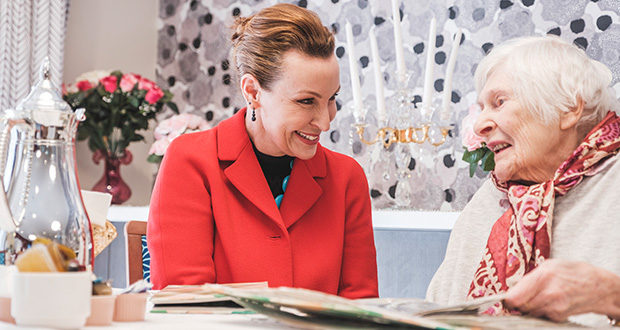As severe workforce shortages cripple the industry, rural and remote aged care homes may have been fighting the hardest to keep their heads above water - and it's not over yet.
Upcoming legislation will mandate 24/7 registered nurses by July 2023 and increase the minimum care minutes per resident to 200.
While most providers agree that major reform is needed to save the sector, the prospect of signing up those extra staff is troubling since many regional homes struggle with recruitment.
Chief executive of Southern Cross Care in NSW and ACT, Helen Emmerson, says workforce shortages have quadrupled matters for regional homes.
"It's not about whether we agree or not – it's where are these registered nurses?
"How can the government, in all good spirit and understanding, say this has to come in by the end of the year when we are already in August?
"Even to say it'll come in next year, well, they're not assisting us with the solutions to find staff."
For providers to meet the new standards, StewartBrown estimates an additional 9,000 full-time aged care staff across the sector is needed.
Rural and remote aged care homes have expressed that finding and retaining staff is more complicated than ever.
"It's blatantly staring us in the face that the sector is dealing with severe and critical staff shortages," Emmerson says.
Inner regional homes have been losing over $16 per bed per day, and rural and remote close to $15 compared to major city homes ($11.25).
With regional facilities drained of money and registered nurses' opportunity to earn more working at hospitals, providers worry about how they can attract the required staff.
Aged Care Insite has previously reported that over 500 rural homes would seek exemption from round-the-clock nurses.
"Hospitals cannot find registered nurses, and we're competing with the hospitals," Emmerson says.
"The government needs to be realistic and talk to the providers about the struggles of retaining and attracting staff in the context of care minutes and onsite nurses."
Emmerson says the government needs to speed up visa processing for skilled overseas workers to fill vacant roles in aged care homes.
"We've been hearing and seeing that the whole immigration process is diabolically slow," she says.
"For example, I know another provider that was recruiting registered nurses from England.
"They got 900 applicants and only ended up with 50 – many dropped out because of the whole working visa."
Even if more overseas aged care workers became available, regional homes still face other significant barriers in retaining staff.
Emmerson says the population pools are smaller, making it harder to attract people to rural areas.
Remote areas are also confronted with challenges in providing affordable housing and meeting demand, which is pushing market prices to unprecedented levels.
"These country towns just don't have the available accommodation," Emmerson says.
"We can run incredible recruitment campaigns, go above and beyond with relocation and incentives, but it's still near impossible to find and retain staff.
"Especially if they can't live anywhere nearby."
Like many other providers, she says they've been using empty units in retirement villages to house staff.
They've also been renting properties and apartments for staff for over eight years while picking up the bills themselves.
"We are eating into our own reserves to do this," Emmerson says.
"We have to not only attract staff, but also try and help them make the move to our location possible – and part of that is us paying for accommodation."
Emmerson has also noticed that the negative results revealed by the Royal Commission's 2021 report have put off many potential employees.
"The aged care industry has been through the wringer over the last few years.
"[There's been] a lot of bad press and horror stories, while all the good stories get lost in that."
She says it's created a lot of distrust within the community of aged care providers, leading to staff having to cope with shame and prejudice for working in the sector.
Some aged care workers have opened up, saying they feel stigmatised by the media and the community, who might label them as 'unfeeling' and 'providing inadequate care'.
"Sadly, aged care is not an industry that people are often attracted to, which is quite distressing for me because I think it's such a fantastic industry," Emmerson says.
"We have seen firsthand, even our own staff and myself, that you get a hard time when you tell people what you do.
Emmerson is determined to get the positive stories out again and to find solutions.
She hopes that by working closely with other providers and the government, they'll be able to change the narrative.
"We cannot do it alone – we need to change the way aged care is seen as the bad guys.
"Because ageing is everyone's business."
Do you have an idea for a story?Email [email protected]
 Aged Care Insite Australia's number one aged care news source
Aged Care Insite Australia's number one aged care news source

